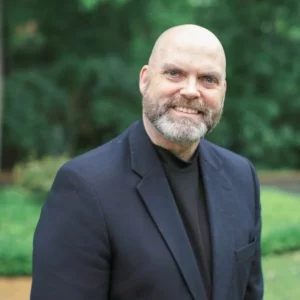General Conference 2016 is now in the books. After a long season of great anticipation and some trepidation, our denominational leaders have now gathered and adjourned, leaving the rest of us to reflect on just what happened in those ten days of conferencing.
There were moments along the way that were downright embarrassing. At least once, I found myself weeping as I listened, wondering just how much more this corporate body could bear without breaking. Much of the proceedings were painfully stifled by the combination of Roberts Rules of Order and an obvious spirit of distrust.
And yet, beneath the surface a trajectory seems to have formed in Portland that is leading us forward in a surprising direction.
My prediction before #GC2016 was that on the most controversial issue to be discussed — the language of the Book of Discipline — we would maintain the status quo, leaving our denomination without clear answers and many without peace and resolution. That prediction has proven true. What I would not have guessed, however, is what happened beneath the surface of General Conference.
It seems, from an analysis of multiple votes on various issues, that the United Methodist Church has taken a decisive step in a more orthodox direction, and certainly a more global direction. The presence of non-American delegates was more powerfully felt and from comments to reporters one gets the sense that our African members especially now have a stronger voice in the process. Our global connection has not only been retained but deepened.
Here is my take on what happened at General Conference:
- An overwhelmingly strong vote (75% to 25%) disaffiliated the UMC from the Religious Coalition for Reproductive Choice. This represents a significant shift in thinking for the global Church.
- The church continues to pursue important justice and mercy issues including human trafficking, stamping out killer diseases like malaria and AIDS, environmental stewardship, and the sanctity of human life.
- The language of the Book of Discipline around issues of human sexuality remains as it is. Other votes related to this issue were shelved in favor of a future conversation guided by the Council of Bishops after further study.
- The Conference defeated motions to separate the American Church from the global Church. The call to remain a global Church became one of the more important themes of the Conference.
- The body of the Conference requested and received the leadership of the Council of Bishops on the issue of human sexuality. A commission was formed which has been charged with studying the issue and developing a strategy for graceful exit and disaffiliation for those who disagree with its findings.
- A disaffiliation-with-property proposal passed a committee vote, signaling support for an eventual conversation about this. While that proposal did not make it to the floor of the Conference, it should be a priority of the Bishops’ commission to explore this option.
- The margins in the votes on key issues signal that the weight of opinion has shifted toward a more orthodox theology.
- Both the University Senate and Judicial Council received a number of new members who are more theologically orthodox. For the first time, the chair of the Judicial Council is not an American.
- A proposal was made and accepted requiring bishops to hold one another accountable for decisions in their individual Conferences.
- For the first time (or so it seems), those on the far left publicly discussed a possible exit, signaling that none of us on any “side” is ready to settle for the UMC as it currently exists.
- The strength of the UMC is now clearly in the hands of the global church. The African church, growing at significant rates, now holds the power in our denomination. The General Conference is scheduled for the first time outside the U.S. (in 2024 in Manila, Philippines, followed by 2028 in Harare, Zimbabwe).
- The UMC grew by a total of 1.2 million members in the last four years, mostly outside the U.S. The Africa Central Conference has grown by 329 percent, while in the United States the denomination has declined by 11 percent.*
- The charge to the Council of Bishops has no definition beyond the formation of a commission. No timeline or specific goals other than the discussion of human sexuality were assigned to this commission.
- Through two weeks of meetings, there was an obvious conversation about separation that needed to happen, yet no one presiding on the Conference floor was willing to step up and lead that conversation publicly. Consequently, that conversation happened at every level except on the Conference floor.
- There is a growing disconnect between the theology and ethos of the American church and the rest of the world. Rev. Jerry Kulah, dean of the Gbarnga School of Theology in Liberia, is quoted as saying, “The church has taken on strangely a new direction. People from the country that brought the Gospel to us are now preaching a different Gospel.”*
As the gavel fell on Friday afternoon, it seemed from this distance as if no one on any side of the conversation left #GC2016 with a clear path or encouraged spirit. Yet, many who have been deeply discouraged left with the realization that (as we say in the south) it ain’t over yet.
And what is ahead may surprise us.
* Emily McFarland Miller. “African Methodists Worry About the Church That Brought Them Christianity.” Ministry Matters: May 20, 2016.








